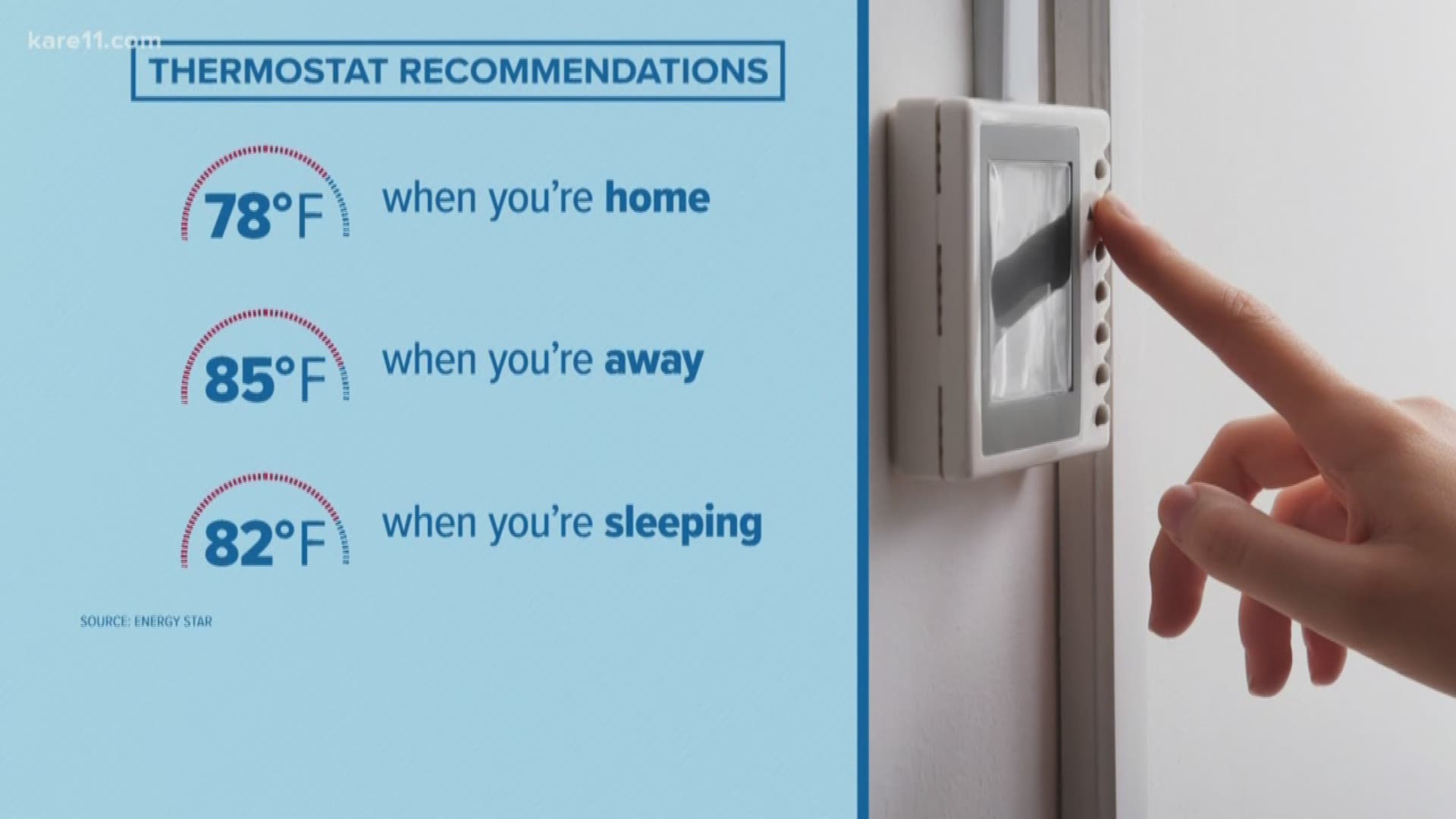GOLDEN VALLEY, Minn. — Here's a topic getting people really heated, both literally and figuratively; keeping your thermostat at 78-degrees in the summer.
That recommendation, from the Department of Energy and Energy Star, sparked a heated debate on social media.
The idea behind that number, is that keeping your home at 78-degrees will maximize efficiency, saving both money and energy.
Many online, however, argue that’s just too hot, but is it really too hot? Or do people just need time to adjust to it?
Jarad Miles does home energy assessments with the Center for Energy and Environment in St. Paul.
At the office they keep the thermostat at 78-degrees in the summer and Miles says it’s the same thing at home.
“We have to walk the walk,” Miles chuckles. “I did it gradually and to be honest I didn’t even notice it.”
But he understands not everyone agrees with him.
“I do about two home assessments a day,” Miles says. “The temperatures at peoples’ homes are wide ranging. Obviously, someone who’s at 68 or 69 degrees, asking them to go to 78 is quite a jump.”
78-degrees isn't as crazy as it sounds.
A lot of heating and cooling companies agree it's the best temp for energy efficiency.
And in 1979, President Jimmy Carter ordered all government and public buildings be kept at 78-degrees or warmer in the summer and 65-degrees or cooler in the winter to save energy.
Experts at the time said it saved over $4.5 billion a year before the idea was scrapped two years later.
But how much can you save?
Well, it depends on the size of your home, where you live, what types of appliances you own, etc.
A good basic rule from the Department of Energy is that adjusting your thermostat one degree for eight hours a day will save you 1% on your utility bill.
So, theoretically, turning your thermostat up from 70-degrees to 78-degrees for 8-hours a day could save you about $19.60 a month.
And if you keep your home a little warmer at night, and when you’re at work you can save even more.
Miles says money is one thing, but comfort is also important.
He recommends starting small and adjusting more as you go.
"If you can get away with it being set higher than you've got more money to spend on other things."

